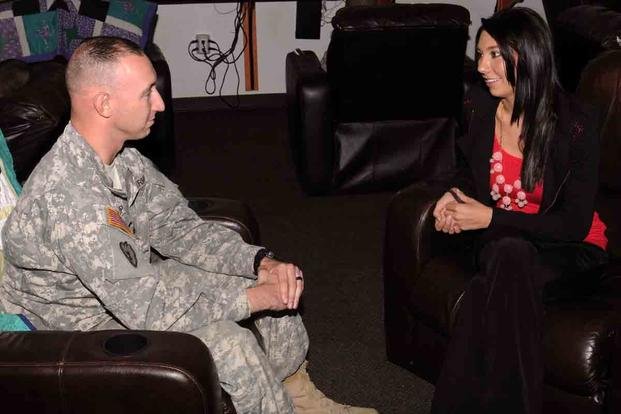Introducing yourself to a stranger is a unique and interesting experience. How much do you share? Where do you start? What do they want to hear? Since we may not know anything about the person we're meeting, we might opt to be general and nonspecific. Or to pique their interest, we might try to be clever and mysterious.
To make life easiest for ourselves, we may create one standard way of introducing ourselves to anyone we meet -- from the new neighbor who moves in, to the stranger in the elevator, to the recruiter in a job interview.
Unfortunately, that's where things can go very wrong; meeting a stranger in an elevator requires a very different pitch or introduction than in a job interview.
Introducing Yourself in an Elevator
When a stranger turns to you in an elevator (or any random place where conversations might happen), there are many reasons for the encounter. Maybe you're wearing something that catches their eye, such as an Army hat. Perhaps you're carrying materials from a job fair. You simply might look like someone they knew or want to know, or perhaps they just made eye contact with you and felt obliged to start a conversation.
Assuming you want to engage with the person, when they ask you, "What do you do?" or, "Tell me about you," in a random setting, your pitch should accomplish three goals:
- You want to introduce who you are and what you do to set the foundation for your introduction. This is an important point. If you're too mysterious and abstract, the other person could be left confused or feeling stupid ("should I understand what that means?"). For this reason, refrain from listing off your military occupational specialty, or MOS, or using too many military acronyms.
- Then give a quick overview of how you got into the type of work you do, or why you're passionate about your work. Also, if there's something you're pursuing that's new and interesting, add that.
- Finally, give an example or illustration of what you do or what you're looking for. This helps paint the picture of your work, skills and value proposition.
The goal is to start a conversation with a stranger that could lead to an interesting and rewarding professional relationship. As such, be sure to inquire about them and what they do.
Selling Yourself in an Interview
Contrary to introducing yourself to a stranger in an elevator, a job interview is a meeting you should prepare for. You should know something about the person you're meeting, the company you're talking to and the position for which you're applying. For these reasons, when the interviewer starts the meeting by asking you, "Tell me about you," you'll not give a general introduction but rather will focus on these three objectives:
- Past. Highlight the experiences, accomplishments, skills and traits you've attained and gathered in your past that bring you to today and the present opportunity. You'll talk about your past as it relates to what you're in the interview to discuss. For example, if you're interviewing for a project management job, you'd highlight past experiences managing projects (or missions), the results you achieved and any extraordinary circumstances you had to navigate.
- Present. Next, pull your past experience to the present. Why is this job so interesting to you? What is it about the position that appeals to you, and why do you see yourself as a fit? Why are you passionate about the kind of work the company does?
- Future. Finally, go forward. Talk about how your past experiences and who you are today have prepared you to add value to the company in the future. Get as specific as you can about how you'd grow their mission, add to their value and meet their goals. These answers would be based on the advanced research you did on the company, job and interviewer.
The "tell me about you" question in a job interview is not an invitation to ramble about your life story. Rather, connect your past to who you are today and show the interviewer how that means you're poised to help them achieve success.
You'll introduce yourself many times in your post-military career: at social gatherings, events, conferences and in job interviews. You'll meet strangers in line for coffee, in elevators and at the dog park with your pup. Understanding the differences in introductions will set you up for successful and productive new professional relationships.
Want to Know More About Veteran Jobs?
Be sure to get the latest news about post-military careers as well as critical info about veteran jobs and all the benefits of service. Subscribe to Military.com and receive customized updates delivered straight to your inbox.











